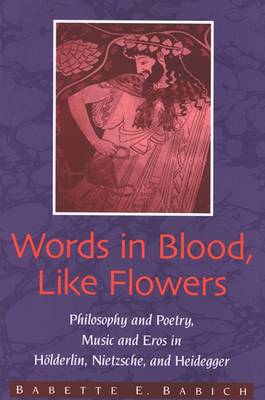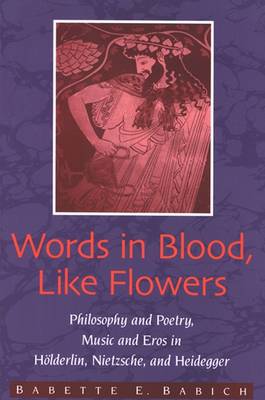
- Afhalen na 1 uur in een winkel met voorraad
- Gratis thuislevering in België vanaf € 30
- Ruim aanbod met 7 miljoen producten
- Afhalen na 1 uur in een winkel met voorraad
- Gratis thuislevering in België vanaf € 30
- Ruim aanbod met 7 miljoen producten
Zoeken
Omschrijving
Why did Nietzsche claim to have "written in blood"? Why did Heidegger remain silent after World War II about his participation in the Nazi Party? How did Hölderlin's voice and the voices of other, more ancient poets come to echo in philosophy? Words in Blood, Like Flowers is a classical expression of continental philosophy that critically engages the intersection of poetry, art, music, politics, and the erotic in an exploration of the power they have over us. While focusing on three key figures--Hölderlin, Nietzsche, and Heidegger--this volume covers a wide range of material, from the Ancient Greeks to the vicissitudes of the politics of our times, and approaches these and other questions within their hermeneutic and historical contexts.
Working from primary texts and a wide range of scholarly sources in French, German, and English, this book is an important contribution to philosophy's most ancient quarrels not only with poetry, but also with music and erotic love.
Working from primary texts and a wide range of scholarly sources in French, German, and English, this book is an important contribution to philosophy's most ancient quarrels not only with poetry, but also with music and erotic love.
Specificaties
Betrokkenen
- Auteur(s):
- Uitgeverij:
Inhoud
- Aantal bladzijden:
- 394
- Taal:
- Engels
- Reeks:
Eigenschappen
- Productcode (EAN):
- 9780791468364
- Verschijningsdatum:
- 1/06/2007
- Uitvoering:
- Paperback
- Formaat:
- Trade paperback (VS)
- Afmetingen:
- 154 mm x 226 mm
- Gewicht:
- 566 g

Alleen bij Standaard Boekhandel
+ 112 punten op je klantenkaart van Standaard Boekhandel
Beoordelingen
We publiceren alleen reviews die voldoen aan de voorwaarden voor reviews. Bekijk onze voorwaarden voor reviews.











